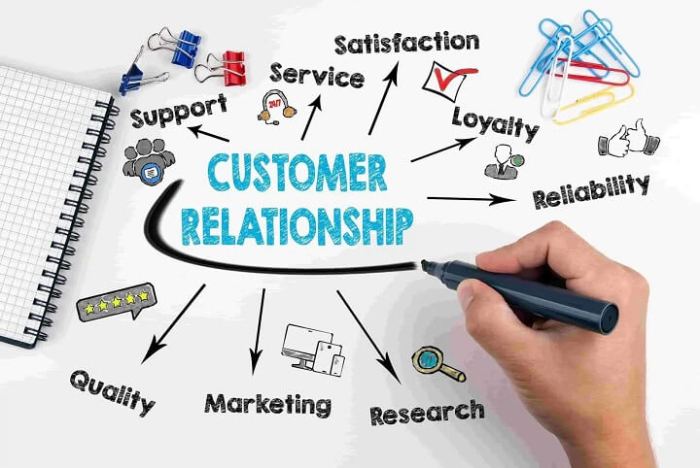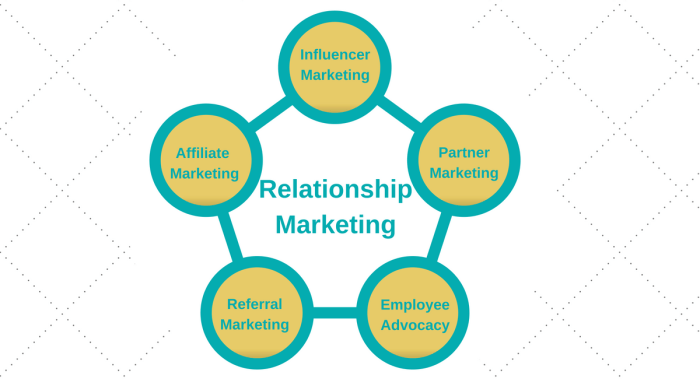Which of the following statements is true of relationship marketing? This question delves into the essence of a customer-centric approach that prioritizes long-term connections and mutual benefits. Relationship marketing, unlike traditional transactional marketing, focuses on fostering enduring relationships with customers, recognizing their value beyond a single purchase.
As we explore the nuances of relationship marketing, we will uncover its key principles, advantages, and strategies, highlighting its significance in the modern business landscape.
Relationship marketing is not merely a buzzword; it is a strategic approach that emphasizes understanding customer needs, building trust, and delivering personalized experiences. By nurturing these relationships, businesses can reap the rewards of customer loyalty, increased revenue, and positive word-of-mouth.
Definition of Relationship Marketing

Relationship marketing is a business strategy that focuses on building and maintaining long-term, mutually beneficial relationships with customers.
It involves understanding and meeting customer needs, fostering customer loyalty, and creating a positive customer experience. The key principles of relationship marketing include customer-centricity, personalization, communication, and value creation.
The goal of relationship marketing is to increase customer retention, customer lifetime value, and brand advocacy.
Commonly Asked Questions: Which Of The Following Statements Is True Of Relationship Marketing
What is the primary goal of relationship marketing?
The primary goal of relationship marketing is to establish and maintain long-term, mutually beneficial relationships with customers.
How does relationship marketing differ from traditional marketing?
Relationship marketing focuses on building relationships with customers over time, while traditional marketing emphasizes short-term transactions.
What are the key elements of relationship marketing?
The key elements of relationship marketing include customer understanding, trust, personalized experiences, and ongoing communication.
How can businesses measure the effectiveness of relationship marketing?
Businesses can measure the effectiveness of relationship marketing through metrics such as customer lifetime value, customer satisfaction, and brand loyalty.
What are the emerging trends in relationship marketing?
Emerging trends in relationship marketing include the use of technology for personalized experiences, customer journey mapping, and data-driven insights.


